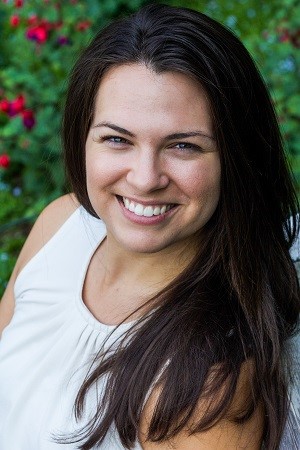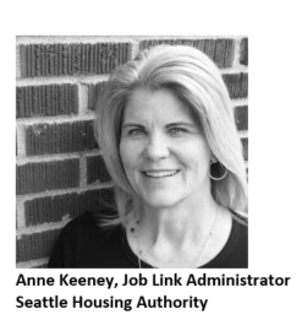Reflections On My Mentoring Experience
August 23, 2019
By Rachel Andre, ECMC Foundation Fellow
 When I joined the Postsecondary Leadership Success Program at ACTE - Sponsored by the ECMC Foundation and learned we had to choose a mentor, I dreaded it. I had never asked anyone to be my mentor. It seemed so awkward and intimate to make that ask. Although I had good relationships with people I worked with, admired and wanted to know more about, I had never approached someone to be my mentor.
When I joined the Postsecondary Leadership Success Program at ACTE - Sponsored by the ECMC Foundation and learned we had to choose a mentor, I dreaded it. I had never asked anyone to be my mentor. It seemed so awkward and intimate to make that ask. Although I had good relationships with people I worked with, admired and wanted to know more about, I had never approached someone to be my mentor.
I knew who would be the perfect person for the job. Anne Keeney, who I had met through my previous job at the Seattle Colleges working with her organization, Seattle Housing Authority. Although I’d shared some one-on-one moments with Anne, we didn’t know each other well and I’m sure she wouldn’t have expected this request from me. I waited until last minute to ask Anne to be my mentor because I was a little embarrassed. In a panicked race again the deadline, I typed up a quick email and hit send. Shortly thereafter, she replied and enthusiastically agreed. We got a date on the calendar and I breathed a sigh of relief.
A bit more about why I chose Anne: She knows the local workforce ecosystem like the back of her hand; she understands how to navigate politics and personalities; and most of all, she is an amazing leader. I watched her launch a new innovative program at the housing authority called JobLink, which connects public housing and section eight tenants with education and employment. She was confident as she rolled out the program. She made well thought-out, data-driven decisions. She constantly sought the perspectives and expertise of her team for continuous improvement not only for the program, but for input on her leadership style. I thought to myself: “If I want to make big changes to the CTE dual credit program this year, I want to do it the way Anne Keeney would - but how exactly did she do it?”
At our first meeting, I learned that Anne didn’t think up the JobLink program all by herself. The framework was handed to her on her first day of the job. It sort of blew me away because I’d always thought that she had somehow put together this intricate program single-handedly without any prior experience at her institution. The curtain had been pulled back. The illusion that great innovators have to come up with their ideas in isolation faded from my mind. It made me feel less anxious about revamping my own program. You can build on what came before you. You don’t have to have all the answers. You can ask for the help you need. 
After that, I launched into a long and winding description of my new job and all of the challenges and ups and downs I’ve had. Frozen with decision-making, troubled by institutional politics, feeling like an imposter who somehow ended up in a position for which I was not qualified. After all that she said, “Take a breath. That’s a lot”. And then we laughed. It was great to release the pent-up anxiety with someone who doesn’t work at my institution but could empathize with the stressors of the work all the same.
The conversation went on for about an hour and a half, and I walked away feeling energized with a handful of new resources Anne recommended. I look forward to our next meeting, and even after just this first one, I know I’ve learned a valuable lesson. Asking someone to be your mentor doesn’t need to be intimidating, and even if it feels that way, it’s worth it.
About the ECMC Foundation Fellow
Rachel Andre is the CTE & High School Initiatives Manager at Seattle Colleges. She is an ECMC Foundation Fellow of the Postsecondary Leadership Success Program (PLSP) at ACTE – Sponsored by the ECMC Foundation. The program is part of ECMC Foundation’s CTE Leadership Collaborative Initiative.
